Six personalised social media fails the National Lottery should have paid heed to
Social media marketing is no longer in its infancy, nonetheless, brands continue to put their necks on the line with ill-fated campaigns that enable the public at large to plaster expletives and filth on its content.
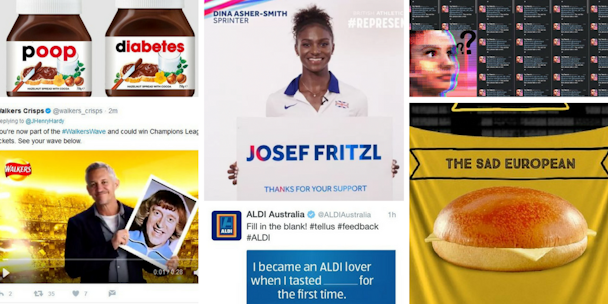
Multiple personalisation fails
Team GB and the National Lottery are the latest brands to fall into the trap of forgetting that the internet takes great pride in subverting cheesy and saccharine marketing campaigns, intended to evoke passion or emotion, into something all-the-more darker.
The sooner brands realise their personalised social media campaigns serve only as a reluctant canvas for the species' darkest urges, the better.
The campaign saw the UK’s brightest athletes, complete with a full-on smile, wield toxic sentiments deliberately uploaded to erode any attempts at brand building and instead make a mockery of the efforts.

The National Lottery said: "We are aware that some people are maliciously targeting our British Athletics Twitter campaign with offensive and abhorrent content.
"We are dealing with this as quickly as possible and are hugely sorry for any offence caused by this malicious act."
But should the mishap have happened in the first place? There are plenty historic examples to learn from.
Here are six campaigns that suffered similar fates as a result of personalisation and social media.
6: Walkers: #WalkersWave
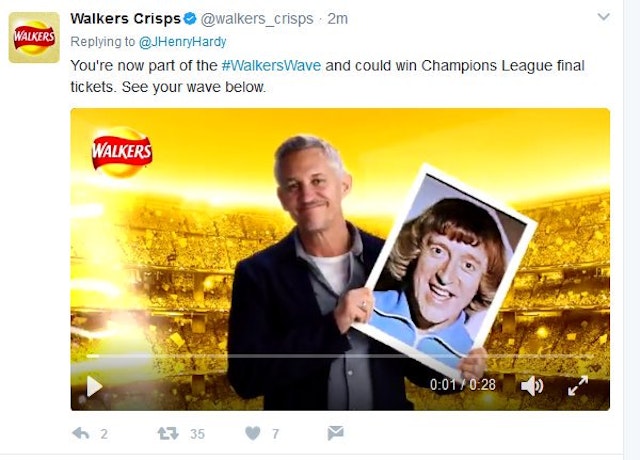
UK crisp brand Walkers advanced beyond mere written expletives, allowing internet users to integrate a ‘selfie’ into a personalised video from mascot Gary Lineker.
The long-time brand ambassador, in automated fashion, would unknowingly compliment the selfie before undeservingly entering the individual into a prize draw for Champions League Final tickets.
The #WalkersWave was being hijacked with despicable British faces, all seemingly receiving an endorsement from Lineker. A lack of moderation on the content saw criminals like Yorkshire Ripper' Peter Sutcliffe, Harold Shipman and Rolf Harris potentially projected onto the side of Wales’ national stadium before the final.
Walkers said in a statement: "We recognise people were offended by irresponsible and offensive posts by individuals, and we apologise. We are equally upset and have shut down all activity."
Watch the video in action here.
5: Microsoft: Taybot

Microsoft opened up its AI platform Tay to the world in 2016. The machine was supposed to have the tone and interests of a teenage girl, designed to learn from Twitter interactions with real people.
“The more you chat with Tay the smarter she gets,” said Microsoft, and she did. Humanity made real efforts to radicalise and taint the project. By sending Tay toxic sentiment, she would absorb the content and integrate it into her future musings.
In a remarkably short time the account mentioned Hitler, 9/11 and outlined the hellish fate feminists deserve, back in 2016.
Since then the wayward teen has been in lock-down, perhaps Microsoft was not testing a bot, but was instead testing mankind’s propensity to bring ruination to all it comes into contact with.
4: Nutella: #MyNutella
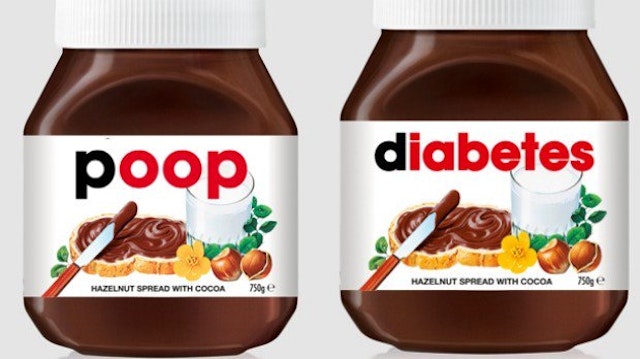
Nutella looked to spread the joy (and sales) by allowing consumers to mock up personalised jars back in 2015.
The high-in-sugar spread endured unsurprising connotations with poop, diabetes and more, all shared with the #MyNutella hashtag. Using the site, users could get previews of their labels, meaning they were just a screenshot away from whipping up a brand disaster on Twitter.
Nutella stood strong: “Although some people have chosen to use the campaign as an opportunity to create and post less then appropriate images online, most consumers have embraced it in the manner it was intended...”
#MyNutella is now making personalized labels
You can put your name, or a friend's!
What an exciting time to live in pic.twitter.com/KtCSqle3Lw
— Brandon Dayton (@DaytonDoes) September 23, 2015
Ferrero-owned Nutella has yet to pick up the campaign again, with a profanity filter and some human moderation, it could emulate the success of the Share a Coke campaign.
3: Coca-Cola: Share a Gif
Coke released a well-intended gif maker in 2016 order to promote its new 'Taste the Feeling' strapline.
Social media users were able to overlay gifs from the ad with their own original ad copy.
Again, the campaign rolled out exactly as you would expect.
#GIFthefeeling of polydipsia, peripheral neuropathy and fatigue pic.twitter.com/nGi0Ahp9Vv
— phexioenesystems (@Scatterfold) January 21, 2016
@CocaColaEP @CocaCola Please do more to reduce & reuse the plastic you make. It's filling our seas. @GreenpeaceUK #GIFthefeeling pic.twitter.com/QVE7SomEi8 — Hedley Lamarr (@MikeEcoPR) April 27, 2017
Made this cool GIF with the new #GIFtheFeeling app! You should try it out! pic.twitter.com/thlYoqddB4 — meimei. (@Birdyflorae) April 27, 2016
I'm pretty sure no one will use this gif generator to take the piss #GIFtheFeeling https://t.co/F7zfC84ek7 pic.twitter.com/v87zWejYz2 — Everyone Associates (@EveryoneAssoc) April 1, 2016
2: McDonald's: Create a Burger
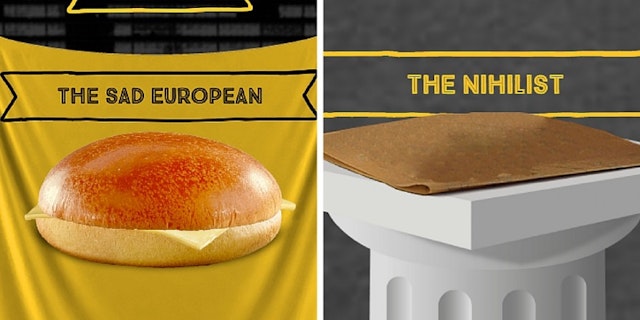
McDonald’s New Zealand has learned the hard way how ruthless the denizens of the web can be when asked to express their creativity.
The company launched a hub where burger enthusiasts could design and name their own patties.
Those who participated in the scheme would receive free fries and a soft drink... even if they probably did not deserve them. It's unclear how many of these suggestions McDonald's could put on menu, naturally the hub was shut down before more damage could be done.
1: Aldi: I became an Aldi lover...
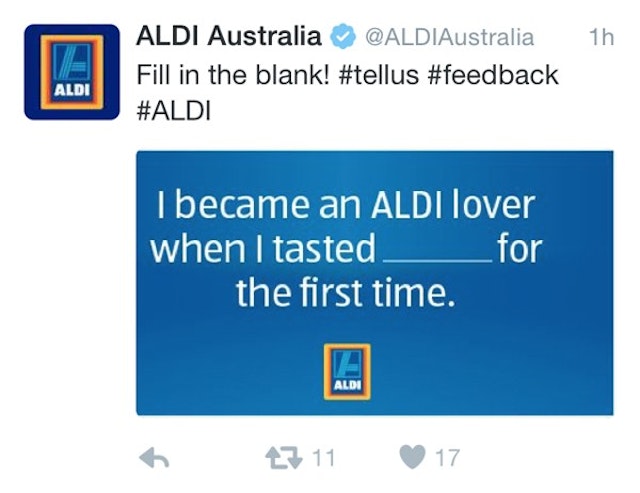
Aldi Australia made the mistake of running a fill-in-the-blank challenge on Twitter in 2016, it asked “I became an Aldi lover when I tasted _____ for the first time.”
Aldi no doubt expected answers like “freshly baked pastries” or “fresh, free range eggs” but that is not the route the campaign went down, in hindsight predictably.
Everything from genitals, unsavoury people, and of course horse meat, was thrown into the mix, most of which is not sold in the aisles of Aldi. Some sound advice filtered through to the brand from a concerned bystander.
Here's some free advice, @ALDIAustralia. Don't have a marketing strategy that makes your product a question in Cards Against Humanity. — not a kiwi spy (@jurassic_snark_) January 29, 2016
As Mark Borkowski is the founder of Borkowski.do wrote on the subject after the Walkers gaffe, brands need to stop thinking people love them.
We'll close on a final image that should sum up these doomed endeavours, Boaty McBoatFace, the ill-fated poll to name a research vessel and the definitive case study in working with the public.


